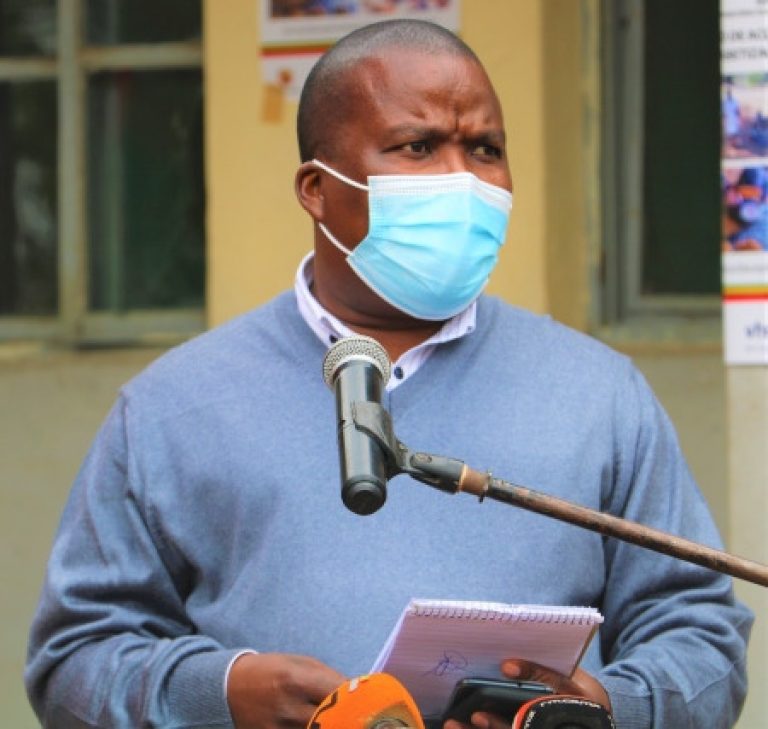DVV International calls for joint efforts to fight illiteracy
6 October 2021 | Dyson Mathwanji | DVV International Building Community Education Programmes

DVV International in Mozambique has called for continued and joint efforts among Adult Learning and Education (ALE) stakeholders to eradicate illiteracy, which stands at 45% in the country.
The call was made on September 8 by DVV International Country Director for Mozambique, José Mucuapa during the 2021 International Literacy Day commemorations which were held under the theme “Literacy for a human-centred recovery: Narrowing the digital divide”.
The commemorations that brought together various stakeholders including government officials took place in Matutuíne district, Maputo Province. Mucuapa said illiteracy hinders development efforts and it is literate people that effectively contribute to personal, community and national development.
“International Literacy Day is an opportunity for the stakeholders in the Adult Learning and Education (ALE) field to reenergise themselves for the fight against illiteracy in the country. Illiteracy has a significant impact on the daily lives of Mozambicans. It prevents them from accessing decent jobs, as well as equal involvement in their local community, and social discourse. It also perpetuates the intergenerational cycle of poverty and slows long-term economic growth,” said Mucuapa.
He encouraged both men and women in rural areas to enrol in adult literacy classes so that they can improve their livelihoods and other endeavours. According to the United Nations Educational, Scientific and Cultural Organization (UNESCO), Mozambique‘s adult illiteracy rate is almost twice as high amongst women than men. It is also more prevalent in rural areas, where 57% of non-literate people live compared to 23% in urban settings.
Mucuapa stated that DVV International will continue working with the government and other partners to eliminate illiteracy, as it is one of the key factors impacting on development in the country.
In Mozambique, DVV International is working at three levels namely Macro, Meso and Micro. At the macro level, the organisation is working with the Ministry of Education and Human Development (MINEDH) through the National Directorate for Adult Education.
“We will continue with this close collaboration so that we help strengthen the national ALE system at central, as well as provincial levels in Mozambique,” Mucuapa assured the participants at the event.
He also said that DVV International will continue to provide much needed support at the meso level where the organisation is supporting the review of the national teacher training curriculum, ensuring that it includes elements of Andragogy (Adult Education). He further stated that DVV International will continue to work with the Ministry to integrate ALE modules into the national teacher-training curriculum.
At the micro level, Mucuapa said that the government and ALE personnel from the central, provincial and district levels have already been working alongside DVV International and their partners to monitor and support the Integrated Literacy Programme (IP), which was developed, piloted, evaluated and reviewed in recent years in Mozambique’s Maputo, Gaza and Sofala provinces.
During the event, His Excellency the Governor of Maputo, Júlio Paruque, recognised the efforts of DVV International and its partners. He thanked them for the concerted efforts to end illiteracy in Mozambique.
Apart from the ongoing work with the IP, DVV International is also providing technical support to MINEDH to introduce the approach in two other provinces (Tete and Zambézia) as an alternative to traditional literacy programmes. Traditional literacy programmes are often affected by high dropout rates and a perceived lack of relevance to the needs and interests of communities. Currently, the dropout rate stands at 40%.
In her speech, the Matutuíne District Administrator, Juliana Cornélio Mwito, highlighted the importance and advantages of attending literacy programmes and invited partner organisations to do their best to eradicate illiteracy.
The ceremony was marked by cultural activities such as traditional dances, and an exhibition of literacy books that were printed courtesy of DVV International. The event reached its climax when the Provincial Director of Education and Human Development, Deolinda Cossa, awarded 25 literacy participants with bicycles and learning materials. He expressed appreciation to DVV International for the support provided to ALE in the country.